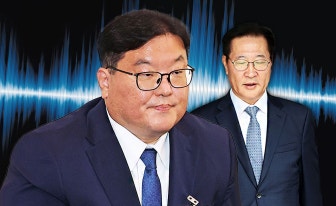Ko Jae-hyun
The author is a professor at the School of Semiconductor and Display Engineering at Hallym University.
October, the annual season of Nobel Prize announcements, always offers material for reflection. This year, Nature analyzed all 202 Nobel laureates in physics, chemistry and physiology or medicine since the turn of the 21st century. The data revealed that more than 30 percent — 63 scientists — won the award while conducting research outside their country of birth. Four of this year’s six laureates in physics and chemistry were immigrants. Strikingly, 41 of those 63 were based in the United States at the time of their award.
It is well known that during World War II, the United States welcomed an influx of European scientists fleeing persecution. Albert Einstein was the most famous among them. The migration of such minds played a critical role in shifting the center of physics from Germany to the United States in the first half of the 20th century. Later, during the Cold War, America continued to accept scientists and engineers even from rival states, cementing its status as the world’s leading scientific power.
That long tradition of openness, however, now faces challenges. Under the Trump administration, stringent immigration controls and major cuts to science budgets dealt a blow to the American research community. John Clarke, a Nobel laureate in physics this year, warned that U.S. research was nearing paralysis due to funding reductions, with recovery likely to take years. Reports also show a steep decline in the number of international students enrolling at U.S. universities compared with last year.
For decades, American science thrived on the interplay between basic research and practical application, maintaining a healthy balance between academia and industry. This dynamic was nurtured by inclusion, coexistence and diversity — not exclusion or discrimination. The career of this year’s Nobel laureate in chemistry, Omar Yaghi, born to Palestinian parents in Jordan and later emigrating to the United States, captures that spirit.
When politics dominate science, progress falters. History offers grim examples — from Nazi Germany to Stalin’s Soviet Union — of how state control over scientific inquiry stifled innovation and devastated entire intellectual communities.
This article was originally written in Korean and translated by a bilingual reporter with the help of generative AI tools. It was then edited by a native English-speaking editor. All AI-assisted translations are reviewed and refined by our newsroom.



















































